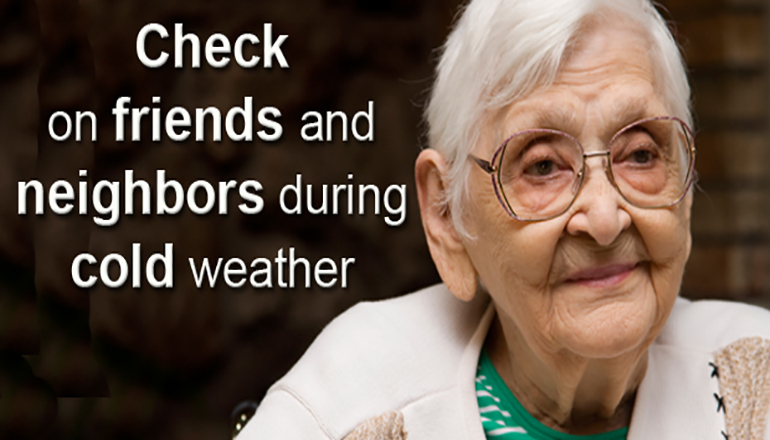Frigid weather across the Midwest puts the elderly at special risk, said a University of Missouri Extension safety specialist.
“Elderly in poorly heated homes or those of low income may unknowingly keep temperatures in a dangerous range in attempts to lower their heating bills,” said Karen Funkenbusch.
As many as 25,000 older adults die each year from hypothermia, according to the National Institute of Aging. Room temperatures as mild as 60 degrees can trigger hypothermia.
Elderly people living alone should arrange for a daily check-in from a friend, neighbor or family member, Funkenbusch said. Room temperature should be checked daily with a reliable thermometer separate from the thermostat, especially during very cold weather.
Dressing in several layers of loose, warm clothing creates air pockets that help retain body heat. Wearing a hat and scarf reduces heat loss through the head and neck.
Victims of hypothermia may become confused or disoriented. Other symptoms may include slow or irregular speech, shallow or very slow breathing, slow pulse, and cold, pale skin. Victims may seem unaware of colder conditions.
Call an ambulance if you believe someone may be a victim of hypothermia.
Insulate the victim with blankets, towels, pillows or even newspapers. Hot baths, electric blankets, and hot water bottles can be dangerous because direct heat may force cold blood toward the heart, lungs, and brain.







